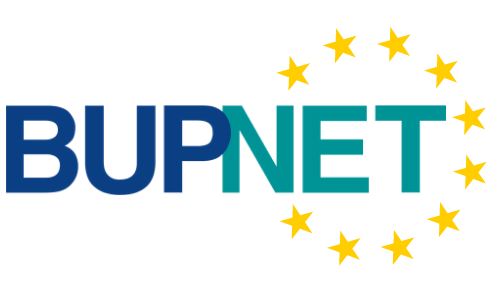PROPSER – Post Pandemic Empowerment Programme
COVID-19 has catalyzed the shift to hybrid and full-time remote working. In PROSPER we believe this transformation is to be welcomed: when effectively managed, remote working brings innumerable benefits to companies and staff including greater autonomy, flexibility and productivity. However, the large-scale move to remote working presents many challenges, in particular new management skills are required to supervise staff virtually. Moreover, given the rapid pace of change, the vast majority of managers have had to navigate this transition without prior training. PROSPER develops a new training for managers (be they owner-managers, HR staff, line managers or team leaders) to update their management skills to better suit hybrid/remote work models.
PROSPER contributes directly to adapting VET to labor market needs. While remote telework is not new per se, the combination of pandemic conditions plus rapid improvements in digital tools have led to an exponential increase in online work which has not been comprehensively addressed in CVET. “It is also striking that, across all the countries and employment forms mapped, hardly any support measures to encourage advantageous deployment or to limit the disadvantageous use of these forms of employment could be identified.” (Council Recommendation on VET for sustainable competitiveness, social fairness and resilience 2020)
PROSPER responds to this opportunity and helps update VET to economic cycles, evolving jobs and working methods in two ways:
- Creation of brand new curriculum/content. The pandemic has sparked a deluge in content on hybrid working, but this reflects an ad-hoc, one-size-fits-all response to an emergency situation. PROSPER will represent the first strategic and comprehensive approach to systematizing, sharing and teaching best practice management of mobile workers in European SMEs in a way that purposefully balances managers’ needs for efficiency and productivity, with workers’ needs for wellbeing and recognition of diversity and inclusion.
- Access to training. Unlike larger multinational corporations in which staff can engage in in-house training, SME managers are busy multi-taskers that rely on quick, highly practical training options from trusted outside suppliers. PROSPER will enable the rapid introduction of training for this target group by developing both content suitable for direct, flexible self-led learning as well as a dynamic blended delivery option to be used by professional HR and business training organizations for their SME clients.
The project results will include:
R1 PROSPER Business Case: Healthy Hybrid Working in European SMEs
The Business Case for Healthy Hybrid Working in European SMEs is a professional publication aiming at:
- SME managers (especially decision makers such as owner-managers and human resources managers) who have a high level of awareness of the difficulties of hybrid working but a low understanding of managers’ role in enabling healthy and productive digital work, and a low awareness of the strategic importance of this work to overall company performance.
- Training providers working with SMEs, who understand the challenges and new strategies available, but need effective resources to communicate to SME clients the value of undertaking training and skills development in this field. It will also be shared with stakeholders, especially policy makers in business VET and business development.
R2 PROSPER Online Course
The PROSPER Online Course aims to provide SME managers with the knowledge and skills needed to update their management practices to better contribute to healthy hybrid working in their companies. The course is aimed specifically at managers in SMEs, including owner-managers, but also other staff with managerial and supervisory roles, such as HR staff, line managers and team leaders. It recognises that they may feel overwhelmed by the pace of change and transition to remote work since remote or virtual management is not something that they have ever received training on in the past. Moreover, while they may have a degree of technical competence with many basic digital tools, they are unlikely to have explored managerial/communications tools for team-based remote work, nor are they aware of the negative consequences of digitally-intense remote work. Finally, managers have interest but little time or resources for professional training, and so are more likely to use quick, practical lessons from the comfort of their digital device.
R3 Prosper Empowerment Programme : Healthy Hybrid Working
The Empowerment Programme is a set of Open Education Resources (OERs) that enable VET providers and individual business trainers to introduce structured, high quality training to SMEs on the topic of healthy hybrid working and new management practices that favour digital wellbeing. The resources are aimed at vocational training providers who work with SME clients on a one-to-one basis. Of all the resources, this one responds most directly to partners’ needs to respond to the demand they already face from SMEs. Moreover, while VET providers are the main target group, the resource naturally reflects the needs of the final users: SMEs and their managers. It is partners’ experience that while online learning is valued, many companies are willing to pay for in-house company training and accompaniment as there is greater benefit in services tailored specifically to their needs, company culture and time availability.
Project website: http://prosper-project.eu

